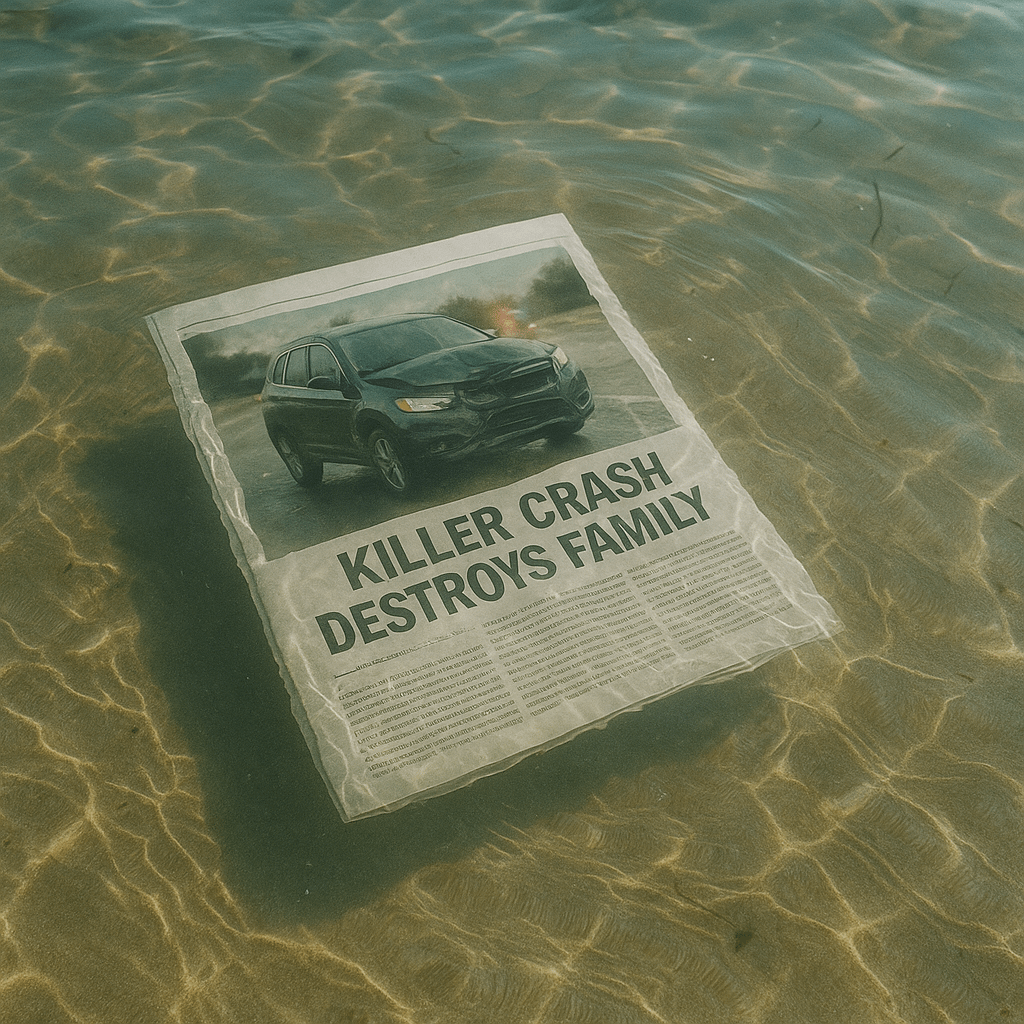Table of Contents
Car accidents are sudden, stressful, and overwhelming. Whether you are dealing with shock, injuries, or confusion about what to do next, knowing the proper steps can make the difference between a smooth recovery and months of unnecessary complications.
Need Help After a Car Crash in Florida?
After an accident, you may be hurt, stressed, and unsure about what to do next. Florida’s insurance rules and deadlines can make things confusing, and mistakes can cost you money and peace of mind. A car wreck lawyer can guide you through the process, collect the evidence you need, and deal bad faith insurers.
Ensure Safety Immediately After the Accident
Your first priority after a collision is safety. If you are able, check yourself and your passengers for injuries. Even minor symptoms such as dizziness, neck stiffness, or headaches may signal underlying issues. Call 911 immediately if anyone is seriously injured.
If the vehicles are operable and you are not severely injured, move to a safe location away from traffic, such as a shoulder or a nearby parking lot. If the cars cannot be moved safely, turn on hazard lights and remain inside with your seatbelt fastened until help arrives.
Remaining calm, taking deep breaths, and prioritizing safety will help you make better decisions in the stressful minutes following a crash.
Call Law Enforcement
Florida law requires drivers to report certain crashes. Specifically, you must notify the police if:
- The crash results in injury or death;
- Property damage appears to exceed $500; or
- Any vehicle needs to be towed from the scene.
Calling law enforcement ensures that an official Florida car accident report is filed. This report documents essential details, including the time, date, weather conditions, vehicle damage, and statements from both drivers. Later, this document can prove invaluable when dealing with insurance adjusters or if a lawsuit becomes necessary.
Even in less severe collisions, requesting an officer’s presence provides an objective record and avoids disputes about what really happened.
Exchange Information
While waiting for the police, exchange information with the other driver. Essential details include:
- Full name and contact information
- Driver’s license number
- Vehicle make, model, and license plate
- Insurance company and policy number
Keep the conversation polite and professional. Avoid admitting fault, apologizing, or making accusations at the scene of the incident. A simple exchange of facts will protect you from unintentionally harming your potential claim.
If there are passengers or witnesses, ask for their names and phone numbers as well. Witness testimony often becomes invaluable when fault is disputed.
Document the Scene
Technology makes it easy to collect evidence immediately after a crash. Use your smartphone to take photos and videos of:
- Vehicle damage from multiple angles
- The position of vehicles before they are moved
- Road conditions, skid marks, and traffic signals
- Weather and lighting conditions
- Visible injuries
This documentation can support your account during the car accident claim process and prevent insurers from downplaying the severity of the crash. If possible, you should also record short video statements of witnesses while the incident is fresh in their minds.
Seek Medical Attention
Even if you believe you escaped unharmed, it is essential to seek a medical evaluation as soon as possible. Many car accident injuries, such as whiplash, concussions, or internal trauma, may not cause symptoms until hours or days later.
In addition, PIP insurance in Florida, the mandatory Personal Injury Protection coverage under the state’s no-fault system, requires that you seek medical treatment within 14 days of the accident to be eligible for benefits. Waiting too long could result in forfeiting your right to compensation for medical bills and lost wages under your own policy. Documenting your injuries promptly also creates a clear link between the accident and your medical condition, which can be vital in any legal proceedings.
Notify Your Insurance Company
Most auto insurance policies require policyholders to notify their insurer “promptly” or “within a reasonable time” after a crash. Contact your insurance company as soon as possible to report the incident.
When providing details, stick to the facts, like date, time, location, vehicles involved, and the basics of what occurred. Avoid speculating about fault or the extent of injuries. If an adjuster asks for a recorded statement, speak with a Florida car accident lawyer from our firm before agreeing. Insurance companies often look for ways to limit payouts, and a lawyer can ensure your rights are protected.

Keep a Record of Everything Related To the Accident
Organization is key after a car accident. Create a dedicated file or digital folder to store:
- The car accident report and any supplemental police records
- Medical records and bills
- Repair estimates and receipts
- Pay stubs showing lost wages
- Letters, emails, or texts with insurers
- Photos and witness information
Having this documentation provides a clear timeline of events, proof of damages, and evidence to support your case if disputes arise during the car accident claim process. Keeping everything together in one place also makes it easier for your Florida car accident attorney to evaluate your situation.
Understand Florida’s Legal Requirements
Florida operates under a no-fault insurance system, which means each driver typically turns to their own PIP insurance in Florida for medical expenses and lost wages, regardless of who caused the crash.
However, PIP coverage is typically limited to $10,000 and may only cover a portion of your losses. If your injuries are considered “serious” under Florida law, such as significant scarring, permanent impairment, or medical costs exceeding PIP limits, you may pursue a claim against the at-fault driver.
Understanding how these exceptions apply can be a complicated task. Our Florida car accident lawyers can help determine whether your injuries meet the legal threshold to step outside the Florida no-fault system and pursue additional compensation for pain and suffering.

Car Accidents in Florida: FAQs
What should I do if I witness a car accident?
While you are not legally required to do so unless you were personally involved in the accident, you may pull over, call 911, and remain at the scene until law enforcement arrives. Offer a statement about what you saw. Your neutral account may help investigators and insurance companies determine fault. You should also check whether anyone appears to be injured and provide basic assistance if you are able, such as offering comfort or helping victims move to a safe location. However, avoid giving medical treatment unless you are trained to do so.
How long do I have to report a car accident in Florida?
You must report qualifying crashes to law enforcement immediately at the scene if they involve injuries, fatalities, or property damage over $500. This requirement ensures that a police officer files an official Florida car accident report. For minor fender-benders that do not require police response, drivers can submit a crash report to the Florida Department of Highway Safety and Motor Vehicles within 10 days.
Separately, for insurance purposes, it is best to notify your carrier within 24 hours, though deadlines can vary by policy. Reporting quickly protects your right to benefits under PIP insurance in Florida and prevents the insurer from arguing that delays caused additional complications. Timely reporting also helps preserve your ability to seek further compensation if your injuries turn out to be more serious than initially believed.
Do I need a lawyer for a car accident in Florida?
Consulting with a Florida car crash lawyer is wise if you suffered serious injuries, face disputed liability, or encounter pushback from insurers. Insurance companies often attempt to minimize payouts, and the Florida no-fault system can make it confusing to know when you can pursue additional damages beyond your PIP coverage.
A car wreck lawyer ensures your claim is handled fairly, gathers evidence such as medical records and witness statements, and negotiates directly with insurers on your behalf. In cases involving catastrophic injuries, permanent disability, or wrongful death, legal representation is especially critical. Having an experienced MVA advocate by your side not only relieves stress but also increases your chances of receiving full compensation for medical expenses, lost wages, and pain and suffering.
Injured? Call a Car Accident Lawyer Today
Car accidents can upend your life in an instant, but knowing what to do afterward can protect your health, finances, and future. From calling the police to seeking timely medical care and understanding Florida’s no-fault laws, each step plays a critical role.
Remember, you don’t have to handle everything alone. If your injuries are serious or the car accident claim process becomes complicated, professional guidance may be essential. A Florida car accident attorney at Levin Litigation can step in, handle the insurance companies, and fight for the compensation you deserve. Contact us to get started today.



